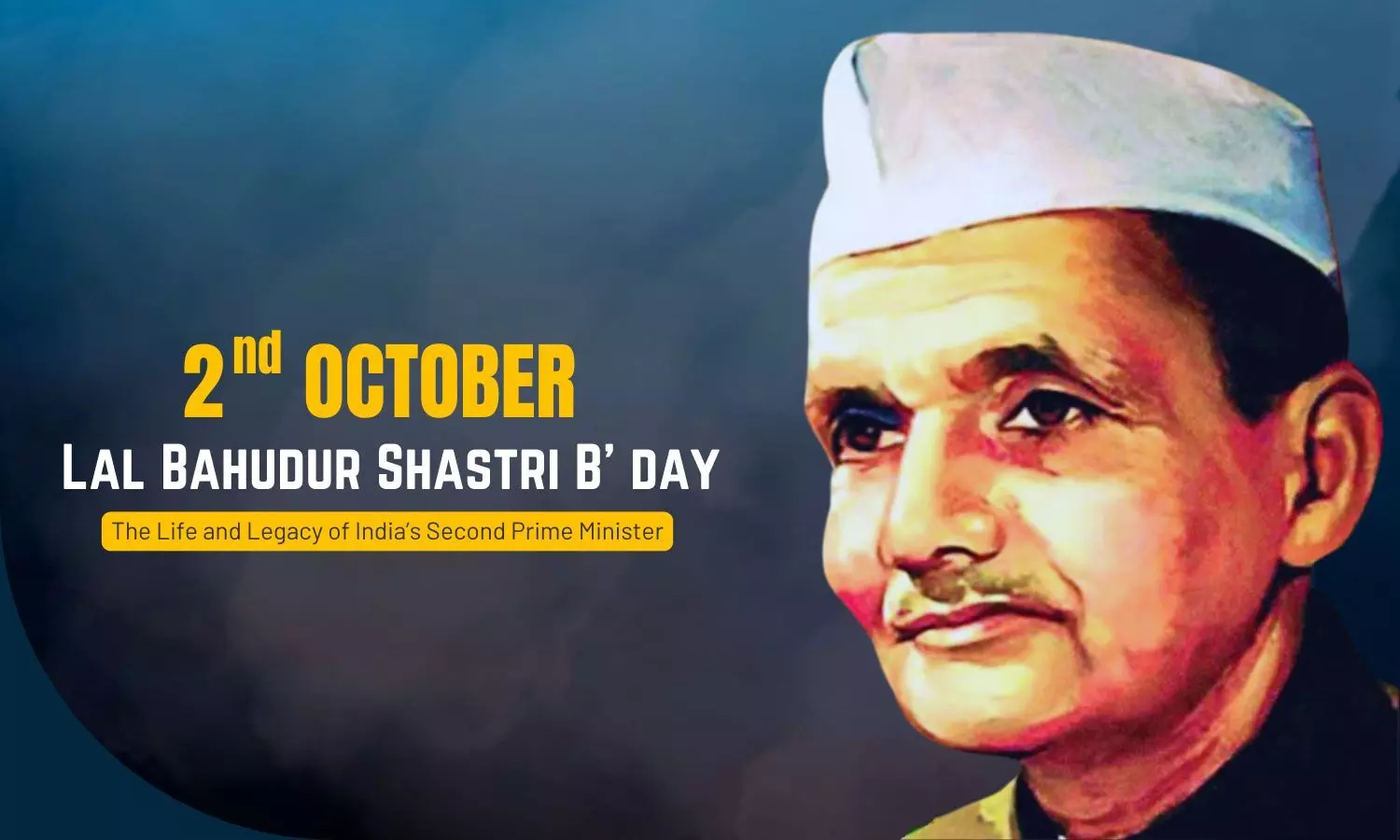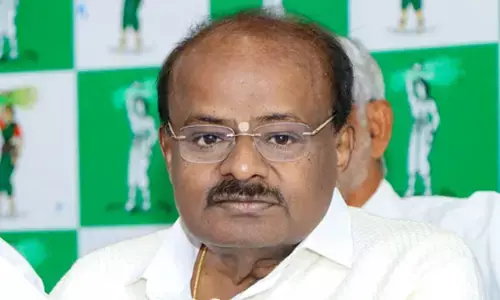Lal Bahadur Shastri: Biography, Leadership, Achievements & Legacy

Learn about the life and legacy of Lal Bahadur Shastri, India’s second Prime Minister. Know about his leadership style and role in the Indian freedom movement.
Lal Bahadur Shastri, India's second Prime Minister, was a man of simplicity, integrity, and resilience. Born on October 2, 1904, in Mughalsarai, Uttar Pradesh, his journey from a humble background to becoming one of the most respected leaders of India is both inspiring and remarkable. Shastri's life and legacy remain a testament to his dedication to the nation, his unassuming personality, and his leadership in challenging times.
Shastri’s Early Life
Lal Bahadur Shastri was born into a modest family, and his early life was marked by challenges. His father, a school teacher, passed away when Shastri was just a year old, leaving his mother to raise him and his siblings. Despite financial difficulties, Shastri was determined to pursue his education. His resilience and commitment to learning became evident as he completed his schooling in Varanasi and later graduated from Kashi Vidyapith with a degree in philosophy. It was during this time that Shastri was deeply influenced by Mahatma Gandhi’s ideals of non-violence and patriotism.
Shastri’s Role in the Indian Freedom Movement
Shastri’s involvement in the Indian freedom movement began at a young age. Inspired by the struggle for independence, he joined the Indian National Congress and became an active participant in the non-cooperation movement led by Mahatma Gandhi. Shastri was arrested several times for his role in protests against British rule, yet he remained steadfast in his commitment to the cause of freedom. His dedication earned him the respect of senior leaders, and he quickly rose through the ranks of the Congress party.
Shastri’s Leadership Style
As a leader, Lal Bahadur Shastri was known for his calm and composed demeanour. His leadership style was characterised by quiet determination and humility. Unlike many politicians of his time, Shastri avoided grandstanding and focused on building consensus. This approach helped him effectively navigate the complex political landscape of post-independence India. His ability to lead without drawing unnecessary attention to himself made him a respected figure both within his party and across the nation.
Shastri and Indian Politics
Lal Bahadur Shastri's political career saw him serve in various key roles, including Minister of Home Affairs and Railways. His tenure as Railways Minister was marked by a deep sense of accountability. When a tragic train accident occurred, Shastri took moral responsibility and resigned from his post, setting a high standard for political integrity. His selflessness in public service made him a role model for future leaders.
Shastri’s time in Indian politics reached its zenith when he succeeded Jawaharlal Nehru as the Prime Minister of India in 1964. Leading the country after the towering presence of Nehru was no easy task, but Shastri handled it with grace and efficiency.
Shastri’s Contribution to India
One of Shastri’s most significant contributions to India was his role in the Green Revolution. The country was facing a severe food shortage, and Shastri took decisive steps to encourage agricultural productivity. His famous slogan, “Jai Jawan Jai Kisan” (Hail the Soldier, Hail the Farmer), highlighted the importance of both farmers and soldiers in building a strong nation. Shastri's policies laid the groundwork for India’s agricultural transformation, helping the country move towards self-sufficiency in food production.
Shastri and Indo-Pak Relations
During Shastri’s tenure as Prime Minister, India faced one of its most significant challenges on the international stage - the Indo-Pak war of 1965. Despite the tensions, Shastri’s handling of the conflict was marked by his diplomatic skills and firm leadership. Under his command, India defended its borders with strength, but Shastri was equally committed to finding a peaceful resolution to the conflict.
In January 1966, Shastri signed the Tashkent Agreement with Pakistani President Ayub Khan, aimed at restoring peace between the two nations. The agreement was a diplomatic victory for Shastri, but tragically, it was also one of his last political acts.
Lal Bahadur Shastri’s Achievements
Shastri's achievements as Prime Minister went beyond his handling of the Indo-Pak conflict. His economic policies, emphasis on food security, and efforts to stabilise the nation in turbulent times were critical in shaping modern India. His leadership was not flamboyant, but it was effective, and his legacy endures in the policies and principles he set in place.
Lal Bahadur Shastri’s Speeches and Quotes
Shastri’s speeches reflected his deep connection to the common people of India. His words were simple, but they resonated with the masses. One of Lal Bahadur Shastri’s quotes that is still widely remembered is, “The preservation of freedom is not the task of soldiers alone. The whole nation has to be strong.” This quote highlighted his belief in collective responsibility for the security and progress of the nation.
Shastri’s Role in the Green Revolution
A lesser-known but equally important aspect of Shastri’s legacy is his role in initiating the Green Revolution. At a time when India was grappling with food shortages and agricultural challenges, Shastri took bold steps to encourage modern farming techniques and boost food production. This revolutionised Indian agriculture, making the country self-reliant in food grains and alleviating hunger.
The Tashkent Agreement and Shastri’s Legacy
The signing of the Tashkent Agreement was a significant diplomatic achievement for Shastri. It marked a ceasefire between India and Pakistan after the war of 1965 and helped establish a framework for peaceful negotiations. However, Shastri’s sudden death in Tashkent, just a day after signing the agreement, sent shockwaves through the nation. His untimely demise remains a topic of speculation, but what is clear is that his legacy of peace and progress continues to inspire.
Lal Bahadur Shastri’s biography is a story of humility, strength, and unwavering dedication to his country. His leadership style, grounded in simplicity and honesty, set him apart from many of his contemporaries. Whether through his contributions to the Indian freedom movement, his role in shaping Indo-Pak relations or his efforts in boosting India’s agricultural sector, Shastri’s impact on Indian politics and society is undeniable. His legacy lives on through his achievements, his speeches, and the timeless values he stood for courage, unity, and progress.
















